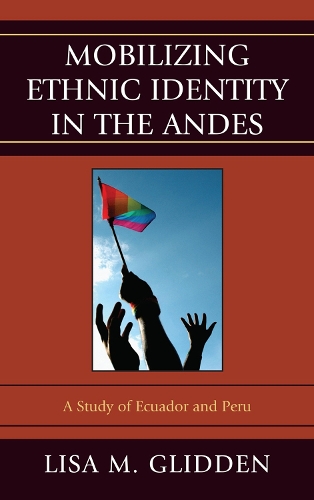
Mobilizing Ethnic Identities in the Andes: A Study of Ecuador and Peru
(Paperback)
Publishing Details
Mobilizing Ethnic Identities in the Andes: A Study of Ecuador and Peru
By (Author) Lisa M. Glidden
Bloomsbury Publishing PLC
Lexington Books
20th August 2013
United States
Classifications
Professional and Scholarly
Non Fiction
Ethnic studies / Ethnicity
Cultural studies
305.80098
Physical Properties
Paperback
146
Width 154mm, Height 228mm, Spine 11mm
227g
Description
Mobilizing Ethnic Identity in the Andes examines why some groups choose to organize themselves based on ethnic identity, that is, why ethnic identities are mobilized and politicized by some populations and not others. It demonstrates that the mobilization of ethnic identity is a political choice, and it is not necessarily the first or natural choice of a group of people who have grievances with their government. The book provides an argument as to when that choice to mobilize an ethnic, as opposed to some other type of identity, is made by looking at Indigenous populations in Ecuador and Peru. It asks the question under what conditions are ethnic identities mobilized to address grievances The argument put forward in this book is that ethnic identity is not an automatic "go to" identity on the part of movement activists or potential members. Movement leaders build a collective identity through consciousness-raising and meaningful framing of symbols. They also shape or take advantage of opportunities to advance the claims and grievances of the community to a broader audience, at least some of whom endorse the validity of the movement. Ethnic identities are then politicized by the ways in which the community interacts with others in the political system, and with the system itself.
Reviews
Glidden (SUNY, Oswego) analyzes the dynamics of ethnic identity mobilization in Ecuador and Peru in the 20th century via a mix of archival and secondary research framed by some elite interviewing. Glidden asserts that four major factors influence the likelihood of ethnic mobilization: identity formation, attribution of opportunity and threat, certification by external actors, and the politicization of identity via brokers. The book examines ethnic mobilization in highland Ecuador, highland Peru, and the Amazonian regions of both countries. Glidden contends that mobilization in Ecuador eventually exceeded that found in Peru because indigenous peoples in Peru were more likely to embrace class-oriented identities and that the brokers interested in ethnic mobilization in Ecuador were more numerous and more credible. Glidden provides a clearly written historical narrative. The incorporation of more individuals' experiences into this narrative would make this book's claims come to life more vividly and more effectively. Summing Up: Recommended. Upper-division undergraduate, graduate, and research collections. * Choice Reviews *
This is a . . . stimulating appraisal of the relative success of political entrepreneurs in mobilising ethnically based social movements in Ecuador and Peru in the late twentieth and early twenty-first centuries. Glidden builds on the ideas of the California sociologist Doug McAdam to model the factors involved in framing, certifying and nurturing these movements....Glidden is promoting a very promising and intriguing research agenda for the Andes. There has been some research on [the] topic but not enough. She also raises important questions about the role of identity politics in the future, based in part on concerns about the continued legitimacy of ethnic leaders. Hopefully more authors will take up this research agenda in the Andes and elsewhere. * Bulletin of Latin American Research *
Up to this point, research on social movements and research on ethnic conflict have developed largely in isolation from each other. This seems strange since any ethnic identity necessarily requires social mobilization to become politically salient. While work on social movements has typically emphasized the importance of structural factors underpinning the opportunities for mobilization, the ethnic conflict research tends to emphasize the strategic manipulation of identities and mobilization by political elites. This book does an excellent (and long overdue) job of integrating the two approaches, and it does so while raising a compelling empirical puzzle: Why, despite similarly sized indigenous populations, does the level of ethnic mobilization vary so considerably across Peru and Ecuador Glidden's compelling answers suggest that we need to pay attention both to the underlying factors that externally shape the prospects for indigenous mobilization and the internal, shorter-term strategic calculations that shape the framing of movements. -- Erik Wibbels, Duke University
Lisa Glidden shows that an indigenous ethnic identity, rather than being essential and constant, is constructed politically, and dependent upon the approval and support of outside audiences. The success of movements in the Andes then, flourish when they get the support of powerful certifiers-often far from South America. Her important study will be useful to anyone seeking to make sense of ethnicity and nationalist movements. -- David S. Meyer, University of California, Irvine
Author Bio
Lisa M. Glidden is assistant professor of political science at the College at Oswego, SUNY.
